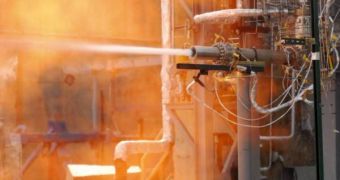According to a new independent report, released by NASA just one day before the presidential investigation committee is scheduled to present its own conclusions to Barack Obama, the American space agency has a chance to save between $3 and $6 billion if it renounces its Ares I rocket, a part of Project Constellation. A possible replacement would be heavily modified and upgraded Delta IV Heavy rockets. The report admits, however, that this would increase the costs of finishing Ares V by about $3.5 billion, and the funds needed for finishing Orion to about $16.6 billion.
If the Project is taken apart, and its individual components are analyzed, the report's analysis stands. If Ares I was not to be a part of a larger group, then it would most certainly not stand the cost/benefit trials. However, as it stands, the rocket is part of the Project, which means that finishing it also has implications for the Ares V heavy-lift delivery system, for the Altair Lunar Lander, and for the Orion Crew Exploration Vehicle. The logistics costs associated with redesigning Orion to fit on Delta IV rockets would cost an additional $14.1 billion. Therefore, it is unfeasible to renounce Ares I.
The June 1 Aerospace Corp. report also failed to take into account one major issue, which has become one of NASA's primary focuses in all its endeavors – crew safety. While the document accounted for Technical feasibility, costs, schedules and impacts on future space exploration, it did not draw any numbers related to crew survivability in the proposes Delta IV configuration. “Aerospace did not perform estimates of loss of mission and loss of crew probabilities [for these rockets],” the report reveals. But existing NASA studies, which also took the modified rockets into account, say that Ares I would be twice as safe as any older, improved models.
According to the report, it would take an estimated 5.5 to 7 years to completely reconfigure Delta IV rockets and the Orion vehicle to their new tasks. Still, numerous hidden costs exist, such as maintaining solid booster manufacturing capabilities in the 5 years between the retirement of the shuttles, in late 2010, and the maiden flight of Project Constellation, scheduled to take place in 2015. If this report is followed up by action, then the construction dates for Orion could be pushed back by about a year, to 2016 at least, the paper acknowledges, Space informs.

 14 DAY TRIAL //
14 DAY TRIAL //